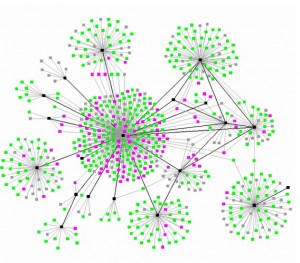Earlier this year I attended an international conference and, although there were some digital dynamics, the plan for participant interaction during sessions was quite old-fashioned. It was such a disconnect between ideas and actions. It felt dissonant or like meeting in a minor key.
There was a meeting hub and hashtags were announced which did encourage p2p posts. One session speaker even stated (repeatedly) language for tweets. Amazingly odd. Anyway, for this participant, the forced group interactions in each session became artificial and detracted from substantive f2f and digital interactions.
In today’s meeting space, it is imperative that event sponsors wrap each conference or at least major confabs in a digital surround. This becomes an event-focused social network. The network must be an integral part of the total event planning process. Some organizations try to establish the event network internally which can be daunting. Thus, an industry is emerging: event-focused social network providers.
One of my favorite providers of such services, The Social Collective, recently was acquired by Pathable. There is a non-profit, Meeting Support Institute, established to provide multiple services for event and meeting planners. MSI considers the arena of social networks. Cvent is a related supplier and there are others.
The niche market of event-focused social networks is the face of the future. I hope that even with mergers and acquisitions, the emerging industry remains true to its core. Here are three core values:
Transparency — a conference attendee should be swept into the event network, or have the option to enter, via the sponsor portal. All branding should remain focused on the host organization.
User-friendly — the event social network must be easy to use for the novice and rich for the experienced digital guru.
Anticipatory — tools that are available should enrich the total conference experience — before, during, after. Get the participants early, keep them engaged and sustain the dialogue. Such interaction generates anticipation of future events.
Meetings of the future will be both f2f and virtual. Regardless of the site where one participates — whether at the geographic location or meeting website — attendees will be engaged. Certainly for-profit corporations are operating in these ways. Non-profits also must create meetings in harmony with the digital age.

